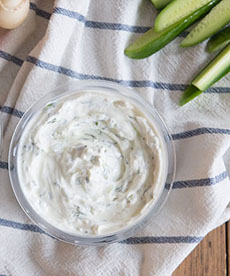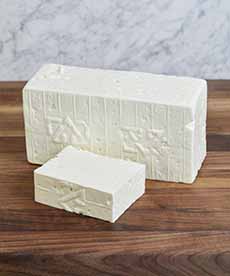Greek Chicken Wings & More Wing Recipes For National Chicken Wing Day
|
July 29th is National Chicken Wing Day. America loves its chicken wings, but there is a debate over what types are best: bone-in vs. boneless and drumettes vs. the wingettes/flats*. RTA Outdoor Livingfull survey). The highlights for National Chicken Wing Day: This recipe is easier than it looks because you purchase pre-smoked, pre-cooked chicken wings (photos #2 and #3, for example). You could also purchase the tzatziki, but the homemade version below is far superior. Just note that you have to drain the yogurt for the tzatziki sauce overnight. Opa*! > Check out 14 more chicken wing recipes below. > The history of chicken. Ingredients For 4-6 Servings 1. MAKE the spice mix. Stir all of the ingredients in a bowl until thoroughly incorporated. Set aside. 2. MAKE the tzatziki sauce, mix all ingredients thoroughly until incorporated. Set aside (or make in advance and chill in the fridge). 3. MAKE the wings. If frozen, thaw completely. Preheat the oven to 375°F. 4. COAT the wings in the mix of olive oil, lemon juice, zest, and garlic. Season with salt and pepper to taste, then coat with the Greek dry spice rub. 5. PLACE the wings in a baking dish and heat in the oven until they are golden brown and heated through (see package instructions). Meanwhile: 6. REMOVE the wings from the oven briefly and lightly toss them with 1 cup of tzatziki sauce. Return to the oven and bake until edges become slightly charred. 7. TO SERVE: Top with the herbs and feta. Serve with the remaining tzatziki on the side. *Drumettes are the portion of the wing that’s attached to the main part of the chicken. It’s shaped like the larger chicken drumstick, hence the name. There’s one main piece of bone in the middle, but there are some joints and cartilage on both ends. The wingette or flat is the middle part of the wing. The shape is flat with two thin bones that run parallel to each other down the length of the flat. It has tender dark meat and is completely covered with skin. Here’s a larger discussion of these. †In Greek culture, this is the expression that sometimes accompanied the traditional act of plate smashing. However, it’s also used to express enthusiasm in general: No dishware need be sacrificed. Here’s more on the Greek custom of smashing plates. |
|
|
|
CHECK OUT WHAT’S HAPPENING ON OUR HOME PAGE, THENIBBLE.COM.
|
||



 Tzatziki[/caption]
Tzatziki[/caption]



